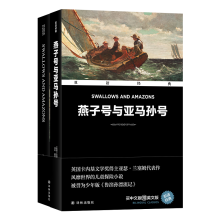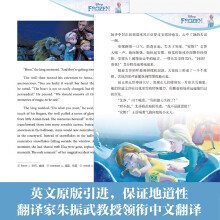1. DAVID MEISTRELL, 17, hung a three-foot-long meshbag from the weight belt of his black rubber wet suit. Around thegently rocking dive boat, Californias Santa Monica Bay sparkledunder a nearly full moon. "Lets go catch more lobsters, Dad,"Da-rid said with a grin.
2.Joe Meistrell, 49, smiled at his only child. In his 25 yearsas a marine biologist, Joe regulary dived in these waters. But he,too, was excited about another trip 80 feet below to the Avalon, aniron steamship wrecked in a storm 30 years before. On their firstdive they had pulled three spiny lobsters from the 265-foot hulk.
3. As they prepared for their second dive on that night of Oc-tober 6, 1995, Joes thoughts went back to an old snapshot show-ing little David in a wading pool, wearing a snorkel and mask andholding a plastic lobster. Even then the boy had been eager to huntlobsters. By the time he was 14, he was a certified diver.
4. Joe checked Davids air tank. "Okay, you can go now," Joesaid, "but dont get out of sight. " David waved, then splashed o-verboard. Joe followed quickly.
5. Only a luminescent line of bubble and the glow from thelight stick tied to Davids tank marked his descent to the silty bot-tom. At 70 feet down he leveled off and kicked ahead with power-ful thrusts from his fins, disappearing into the darkness. Joe swamharder to catch up. Faintly visible below, the twisted remains ofthe Avalon came into view.
6. Earlier, on the dive boat, Joe had cautioned David that theycould stay only 18 minutes on the bottom. Their tanks would runlonger, but Joe wanted to be conservative about their exposure tothe nitrogen gas mixed with oxygen in their tanks. They had al-ready stayed down 33 minutes on their first dive.
7. A hand-size dive computer, dangling on hose from Joestank, calculated their bodies nitrogen saturation. Its two-inchscreen would warn Joe if they should make a decompression stop at20 feet before their return to the surface to avoid the "bends", apainful, potentially fatal condition when nitrogen bubbles into thebloodstream and tissues. Ascending too fast could also kill by rup-turing the lungs.
8. For ten minutes they swam above the mangled, rustywreck. Then they went to inspect the nearly intact bow, aimingtheir flashlights through several irregular six-inch holes corrodedthrough the thick metal of the port side. Inside, they saw lobstersscurrying away, started by the sudden beam. Hunting would beexcellent here.
9. But when Joe looked down by his left foot where his sonhad been a moment before, David had vanished. Where has hegone? Joe wondered.
10. DAVID ASSUMED his father had seen him follow a lob-ster into an 80-inch-wide opening in the hull, where the ships bowhad buried itself in the sea floor. The boy edged up an angled pas-sage into a cramped space some 20 feet across, cluttered with thewrecks fallen ribs and cross braces, chunks of rusted iron and col-lapsed bulkheads.
11. He grabbed a lobster, careful not to let its long spinespiece his gloves. Turning in the tight space, he snaked back to theopening. Hed pass the lobster to his father, then scoot back formore.
12. A THIN LINE OF SILT eddied across Joes flashlightbeam as he inspected the 18-inch hole. Did David go in there aftera lobster? He wondered. The hole looks awfully small. Maybe heswam around to another side.
13. Joe moved a few feet left and looked around the bow at the vast deck stretching away into the muddy gloom. David was not in sight. Joe shivered. Dont worry, he told himself. He can t be far.
14. Suddenly Davids hand popped out of the hole holding a squirming lobster. Thank God, Joe thought, sighing with relief. He grabbed the lobster and put it in his game bag, expecting David to follow. Instead, his son disappeared again. Joe shined his lightinto the hole but saw only muddy water.
15. They now had been at the bottom for 13 minutes. "Comeon out,"Joe muttered to himself. "Weve got to go." Yet Daviddidnt reappear. Two more minutes passed.
16. Should Igo look for him? Joe wondered. He was glad hehad made David wear the new 80-cubic-foot tank. The kid used airfaster, especially when he got excited. His own 72-cubic-foot tankwas older, but unlike David s, it had a feature that warned himwhen he was running out of air.
17. Another minute passed. Could David be struck inside? Joewondered. Id better check. But as he started to pull himselfthrough the hole, his air tank caught on the top of the opening andstruck.
18. Joe pushed and tugged but couldnt get free. Soon he waspanting, sucking hard at his mouthpiece, straining for each breathas he struggled. His airflow dwindled.
19. Still wedged in the opening, he reached back over his leftshoulder and pulled a valve to free his last 450 pounds of air.Breaths come more easily again, but Joe knew hed be lucky if hisair lasted another seven minutes.
20. With a great surge, he broke free and backed out. Hetrembled from the exertion, sweating despite the cold water. Hednever felt so alone. The question he had been avoiding refused to.
展开










